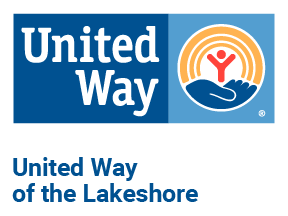Create More Opportunity for All Kids
Early Childhood Education Counts
A child’s neighborhood or family income shouldn’t restrict their access to high-quality education and the same opportunities as other kids their age.
Education is a fundamental right.
All kids deserve access to a high-quality education. But sometimes that access is different depending on what neighborhood a child is from or how much money their family earns.
For kids under the age of five, not having that access could mean falling behind their classmates for their entire academic careers, leading to missed opportunities beyond high school and in the job market.
When you support United Way, you help give our youngest community members access to the high-quality education they deserve.
The Impact of Poverty on Kids
One in five children under five years old are from families who live in under-resourced neighborhoods.1
The stress of living in situations where adults are struggling to make ends meet takes a toll on kids. Children may experience food insecurity, a lack of safety or other negative environmental influences. Research shows that kids from these environments can experience:
- lower brain activity2
- increased challenges in social-emotional development,
- health problems
- developmental delays.3
High Cost of Care and Early Education
Even when high-quality education is available, it may be financially out of reach for families who have a lower income. Currently, the average cost of childcare and pre-kindergarten education is over $10,000.4,5
Why High-Quality Education Matters
Kids are born curious. Even as infants, they are taking in information, processing it and learning from it. The right encouragement to learn from an early age is critical for kids.
Multiple studies show that 90 percent of a child’s brain develops before they are five years old.6
That means in those formative years, children are making more neural connections and developing faster than in any other time in their lives.
How much can kids learn at such a young age? Some experts say that even when kids are playing, they are developing skills in language, executive functions, mathematics and spatial language, scientific thinking, and social-emotional areas that they will use as adults.7
Having adults – whether they be parents, caregivers or teachers – who are informed and ready to engage with children helps prepare them for kindergarten and reach important milestones in later grades.
United Way’s Role
United Way of the Lakeshore supports giving access to high-quality childhood education to all children – especially those from under-resourced neighborhoods. We make care and pre-K education more affordable, support professional development for educators and daycare center staff members and provide tips for parents on how to support the development of their children.
Your generosity helps sustain programs like these. Help more kids get the strong start they deserve by donating to United Way of the Lakeshore.
Sources
1Kids Count Data Center
2University of East Anglia via Science Daily
3American Psychology Association
4Care.com
5BabyCenter
6National Center for Biotechnology Information
7The National Association for the Education of Young Children

